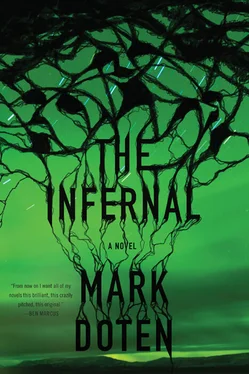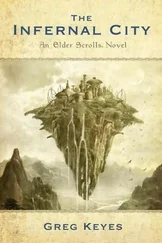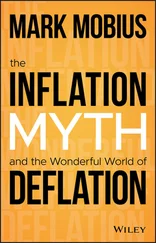Mark Doten - The Infernal
Здесь есть возможность читать онлайн «Mark Doten - The Infernal» весь текст электронной книги совершенно бесплатно (целиком полную версию без сокращений). В некоторых случаях можно слушать аудио, скачать через торрент в формате fb2 и присутствует краткое содержание. Год выпуска: 2015, Издательство: Graywolf Press, Жанр: Современная проза, на английском языке. Описание произведения, (предисловие) а так же отзывы посетителей доступны на портале библиотеки ЛибКат.
- Название:The Infernal
- Автор:
- Издательство:Graywolf Press
- Жанр:
- Год:2015
- ISBN:нет данных
- Рейтинг книги:3 / 5. Голосов: 1
-
Избранное:Добавить в избранное
- Отзывы:
-
Ваша оценка:
- 60
- 1
- 2
- 3
- 4
- 5
The Infernal: краткое содержание, описание и аннотация
Предлагаем к чтению аннотацию, описание, краткое содержание или предисловие (зависит от того, что написал сам автор книги «The Infernal»). Если вы не нашли необходимую информацию о книге — напишите в комментариях, мы постараемся отыскать её.
The Infernal
The Infernal — читать онлайн бесплатно полную книгу (весь текст) целиком
Ниже представлен текст книги, разбитый по страницам. Система сохранения места последней прочитанной страницы, позволяет с удобством читать онлайн бесплатно книгу «The Infernal», без необходимости каждый раз заново искать на чём Вы остановились. Поставьте закладку, и сможете в любой момент перейти на страницу, на которой закончили чтение.
Интервал:
Закладка:
A hundred of us, from all over the country, timed to arrive on the same day. But a series of blizzards had made train travel impossible, and so the two of us were late.
I had come from a state home for boys in Alabama, he had come from an orphanage two counties over — but we caught our trains at the same station, and our two minders rode with us in the same compartment.
Neither of us spoke. I studied the face of this colored boy. He wore thick black glasses. His smile that would come and go, as though flipped by a switch. A smile that didn’t have anything to do with the jerkwater towns we were passing in Tennessee, or Kentucky, or the graded expanses of snow in Illinois, the grids of windbreak pines, the slight frowns of our minders as they read their papers.
On the second day, there was a stop at a station in Wisconsin. A lunch counter. The dollar bills we received from the billfolds of our respective minders.
At the lunch counter, we held tight to our bills.
We stood there and held our bills, and I remember sizing Lewis up — thinking, he is a bit bigger than I am, I wonder if I could take him? Because it seemed to me then, for no reason I knew, that we’d have to fight.
He turned to face me, smile flicking on and off. I clenched my fists in my pocket and prepared to strike. But he just laughed and said, “Let’s tell them we bought sandwiches and they cost a dollar and we ate them.”
My hands released — and I felt the letting go echo in my open palms.
I said, “It’s a plan.”
We were almost giddy, running on the platform, sliding on long tongues of glare ice in the low brilliant hitting sun. We made gestures as if we were eating sandwiches — and even mimed struggling over one, which — our gestures revealed — was torn in two, and we immediately mashed our gloves at our mouths. Then the whistle blew. And as we walked side by side to the car, something changed. Our sense of [heavy cross out] giddiness at getting away with this — not theft, exactly — began to sour. I think we were both embarrassed, to have made such a fuss over a dollar. The smallness, the pettiness of it — and the giddiness it had opened up inside of us. If we could have gone back and erased the giddiness, it would have been fine. But we didn’t know how to do that.
And it seemed that somehow in each other’s eyes we were suddenly [heavy cross out] we were disgraced — caught in a disgraceful moment that we didn’t know how to shake off.
I, a white boy, disgraced in front of a black boy, and he, a black boy, disgraced in front of a white boy.
At that time it meant something, being disgraced like that.
We stopped on the platform, and our bodies began to turn — inward, toward the other.
I wanted to hit him, for real this time — needed to hit him — we each wanted to hit the other, I think — and our bodies tensed.
It was evening and snow was coming down. The distant windbreak pines retreated like ghosts into the gray. All that remained was a diffuse glow within the solidifying darkness — a darkness that seemed at the point of undoing everything.
It was all so cheap to me in that moment — the lunch counter with its sandwiches and us two boys — when set against this grand new backdrop, the snow I’d never before seen.
I felt my entire body tense as I prepared to hit him in the face, aiming behind his face — the muscles of my feet and hands, my torso and pelvis, all clenched and ready — to strike again and again, to do as much damage to his face and the skull behind the face as I could, as quickly as I could.
In that moment I felt sure we would fight and wondered how it would start and what the damage would be.
I faced Lewis, and at last he spoke. “Second thought,” he said, “I could go for something.”
I didn’t want to look him in the eye. I waited, and then I met his gaze. It wasn’t desperation. It was a waiting that was somehow freighted — his eyes seemed to be going up by degrees, as though pride would require them to keep moving like that — up and up — to an impossible degree. His eyes, and the black face, had only ticked up a few degrees, yet in that moment I could see the head going up and up, turning to the roof and still farther, until it went right around.
“All I want’s one of them root beer barrels,” I said.
That broke the spell. We ran back to the counter, and we each bought root beer barrel candy — a penny — and received ninety-nine cents change for our dollars.
We sucked them, and talked more easily until we arrived in St. Paul.
Lewis was my friend.
And I try to remember, try to understand, the life of my friend, but his life is something I cannot remember, and I cannot understand.
I can remember him as the Memex might — as a biographical sketch, a few bare details fleshed out with anecdotes and odd facts. But those are husks set next to the life we lived together.
Lewis was the first to exhibit the symptoms, almost three years after our arrival. One morning he pushed his knuckles at me — the black hairs. [heavy cross out] we escaped. We might have had razors fabricated under some pretext, or simply found a blade at the institute — though our monitors rigorously accounted for blades following a suicide, it could not have been any more difficult or risky to steal a blade than to [illegible] through shaftways to an unguarded stairway leading out. But I think [heavy cross out] St. Paul’s Winter Carnival, and we walked across Rice Park to the foot of the great tower of ice erected each year, and a clock of ice struck the hour — the sound like the distant keening of a thousand crystal birds — and gears and cables creaked to life, and the ice sculptures ranged around us rose from their pedestals and took flight, turning and dipping in a rigorous, jittering dance, stars and angels, fish and whales, on a sort of airborne carousel, blinking and flashing and chasing one another around and around. [heavy cross out]
drugstore a few blocks away.
[heavy cross out]
For all our knowledge and learning, we had never been taught to shave . [heavy cross out]
Back at the institute they were all waiting: the boys and Dr. Vannevar. He asked Lewis to strip. Lewis refused, and with cries of gorilla! gorilla! the other youths tore his clothes off. Dr. Vannevar looked in the bag and found the safety razors and shaving cream. Lewis was shivering and crouching, trying to cover himself with his hands.
Gorilla! Gorilla! they shouted.
Dr. Vannevar handed the bag back to Lewis. You’ll be leaving tomorrow, he said.
I think he handed the bag back knowing what would happen — that Lewis would go back to his room and slash his wrists.
[heavy cross out]
Lewis was perhaps the lucky one — other boys began to fail, one after the next. They were not held as youths, they hit a delayed and monstrous puberty, puberty as wild and agonizing cancer, and those who advanced beyond the initial stage died in tremendous agony, skin scaling or sloughing away, bones bubbling, then going brittle.
When Lewis died, as much as I had once loved the Memex and devoted myself to the Memex, now did I hate it: and I would destroy it, overthrow it, I decided — or at least render it obsolete.
Читать дальшеИнтервал:
Закладка:
Похожие книги на «The Infernal»
Представляем Вашему вниманию похожие книги на «The Infernal» списком для выбора. Мы отобрали схожую по названию и смыслу литературу в надежде предоставить читателям больше вариантов отыскать новые, интересные, ещё непрочитанные произведения.
Обсуждение, отзывы о книге «The Infernal» и просто собственные мнения читателей. Оставьте ваши комментарии, напишите, что Вы думаете о произведении, его смысле или главных героях. Укажите что конкретно понравилось, а что нет, и почему Вы так считаете.












